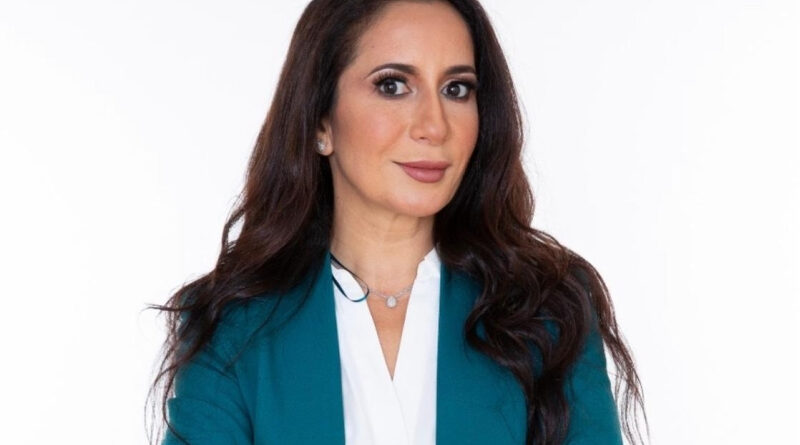Tell us about yourself and your professional journey
My journey counts three major stops: Casablanca – the native home, New York city – the tough love teacher, and Dubai – the nurturing space. With these three great cities, I am the product of the experiences that shaped me throughout this diverse journey, that was also very diverse as far as my professional career is concerned. I count 20+ working experience that included fortune 500 companies, government entities, NGOs, and finally I embarked on the entrepreneurial journey, when I felt that I was called to be part of the change that I wanted to see in the (corporate/business) world.
Tell us a bit about Sustain Leadership, one of its key areas of focus is transformation management, what exactly does that entail?
The first seeds of Sustain Leadership began to take root early on in my career, though I didn’t quite know it at the time. I have been interested in helping clients – whether they be individuals, startups or established organizations – to achieve their true potential for years. Today, this is Sustain Leadership’s core goal. I have a strong belief in the saying: “We don’t build business, we build people and people build the business”. However, the idea of setting up Sustain leadership was officially triggered after my experience at Mohammed bin Rashid Al Maktoum Foundation, where some of the studies I was involved in, showed the need of new business models and organizational solutions to drive excellence, create value and maximize impact. Sustain Leadership, came to life, to produce a needed change in business and society. In a one-line pitch, the mission is to support individuals, and organizations of all sizes and industries, on remaining relevant in an ever-changing world.
Transformation management can be defined in different ways by various experts. At Sustain Leadership, I can summarize it with a quote that I used to open a chapter in my book Seeds of Change, where I compare between change and transformation: A butterfly is not a better caterpillar. Transformation for us is not about seeking to improve, be better, faster or more efficient from the current state, it is about re-inventing and re-defining the current state. Transformation starts from an imagined, new, and desired state, it is led from an emerging vision and future, and working backwards to identify new ways to create it. We also believe that for any transformation to be sustainable, it needs to happen at three levels: personal, interpersonal, and organizational. Starting from leaders, who need to be self- aware about the change they want to drive, and what needs to change in them first.
With your immense body of work and experience, what is essential in the making of a generation of balanced leadership?
Balanced leadership is a leadership style that can create a balance between result orientation and people orientation. It is about balancing between profit and purpose, between being assertiveness and flexibility. The essential attributes to build a generation of balanced leadership are: self-awareness, active listening skills, resilience, agility, and emotional intelligence.
Do you think a balanced leader is one who possess empathy? How important is this trait in business and leadership?
A balanced leader is a leader who balances among the needs of different stakeholders of the organization, with empathy being the most important trait to be able to do so as a leader. Of course if we agree on the definition of empathy in this context, it is about being able to understand the needs of these stakeholders and being aware of their feelings and how your decisions impact their perception. It doesn’t mean you have to agree with how they see things; rather, that you’re willing and able to make sense of what others are going through, be it employees, customers, partners, or the civil society.
When we talk about a more balanced and empathetic leadership, what kind of value does it create when it comes to a strong corporate culture?
It creates trust, loyalty, engagement, and a sense of belonging which can all translate into productivity, and even spark innovation. Employees who feel safe, are employees who open up about novel ideas, who are not afraid from failing if they try something unconventional, because they know they will be given constructive feedback.
How do we bridge the gaps and imbalances, and what is the role of individuals as active engaged citizens of the world, the corporate sector, government as well as NGOs to work collectively?
First by raising awareness about these gaps. This comes through being more vocal about the many imbalances we are facing, how they are negatively impacting our lives, and the effect this has on future generations. We might not be able to change the world as individuals, but we can start by the person in the mirror, and tap into the collective, by engaging as communities, to understand the root causes of these gaps, and be intentional about wanting to bridge these gaps. It is also essential to not work solo but rather engage as multiple and diverse stakeholders to co-create together solutions that can drive measurable impacts on the so many imbalances that are making the world struggle. It starts by building balanced people/leaders, who can build balanced societies and balanced workplaces, without forgetting to keep our mother planet balanced.
While inclusion is the cornerstone of any successful and progressive organization, it is also essential to create a talent pool of women with the right skill-set, what in your opinion is needed to in terms of female talent development?
What’s needed in my opinion is to stop alienating females by these connotations. Many issues come from the lack of confidence and the feeling of not being “good enough” as a female. We never hear of “male talent” or “male entrepreneurs” etc…We are not a minority, and we should start perceiving ourselves and having others perceive us as such. Yes there is still a huge gap and imbalance when it comes to inclusion of females. The talent development should not just focus on females, it should be balanced between the two, because what is the point of developing talent from the feminine gender, if the male leaders are not developed to be inclusive leaders? Another point I always stress on, it is not the “right” skill set that many women lack, it is the definition of the right skill-set that needs to be debated. The right skill-set is still thought of to be more masculine attributes, “determined”, “tough”, “assertive”, “bold”, while “being emotional”, empathic, vulnerable, caring” are still being overlooked as “soft skills”, however these are the right skills for the future. We need more conducive environments that enable women to be balanced authentic leaders.
Anything else you wish to say?
A balanced world is a better world, but before a balanced world comes a balanced self. If we all focus on bringing balance to self-first, we can build a great foundation to bridge the so many gaps and imbalances, no matter what our job or role is.











